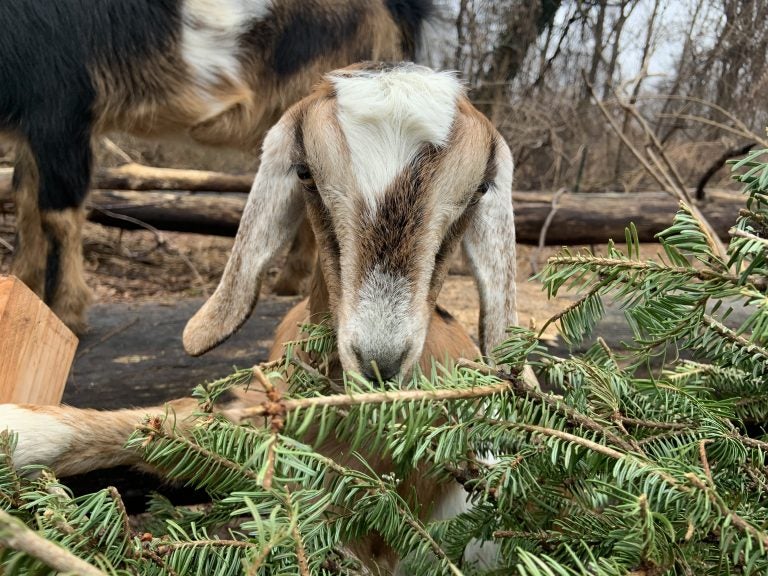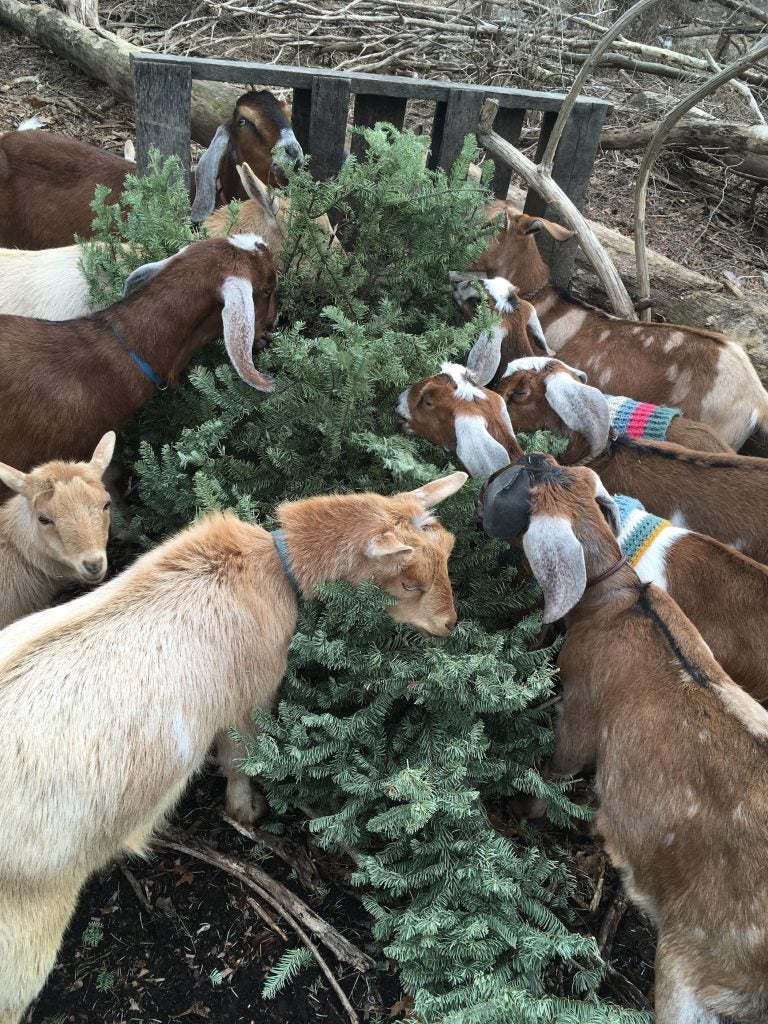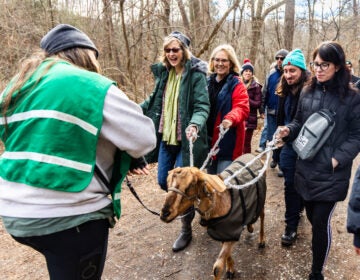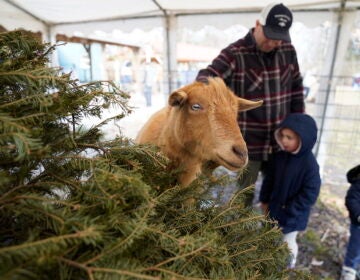Meet the Philadelphia goats who want to eat your Christmas tree
During most of the year, the goats eat hay. But this month, the stout mammals get a chance to enjoy one of their favorite meals: Christmas trees.

A goat nibbles on a Christmas tree (Philadelphia Goat Project)
Lily Sage’s 14 goats celebrate Christmas in January.
During most of the year, the goats eat hay. But this month, the stout mammals get a chance to enjoy one of their favorite meals: Christmas trees.
“They get really excited when I bring in a Christmas tree,” said Sage, assistant director of the Philly Goat Project, an initiative in Germantown.
The Douglas Fir tends to be the goats’ preferred conifer, favored for it soft needles. But Sage said the animals will devour any kind of evergreen in about 20 minutes.
Sage and her mother, Karen Krivit, started the project with three goats in Krivit’s yard. Last year, they moved the goats to the Awbury Arboretum in Germantown. The tribe has grown to more than a dozen goats who participate in animal-assisted therapy, like yoga, and provide grazing services for overgrown land in the neighborhood.
To recycle a Christmas tree, the project asks for a $20 donation for the arboretum. The arboretum received 300 donated trees after Christmas last year. Some 500 evergreens have already come in this year so far, with two more opportunities to donate trees and feed goats still to come.
Sage estimates the goats will be gorging on the donated evergreen innards for months. The goats’ leftovers will get used as wood chips or compost at the arboretum.
“A lot of people feel really good to see their tree going somewhere where they can literally see it being used,” she said.
The goat recycling program is one of the last options for residents wanting to recycle their Christmas trees. Many civic organizations offering to compost trees for a donation, pick them up for a fee, or to use them for dune restoration have already closed their programs. And this Saturday is the last day to drop-off trees for free in 13 city recycling centers.
Those trees not devoured by hungry goats can be chipped and used in gardens as mulch or composted and used as soil. The trees collected at city recycling locations are taken to Fairmount Park for processing. In 2018, the city collected 256 trees. Those left at the curb get collected as trash. Deputy Streets Commissioner Keith Warren said some of them are then taken to a Waste Management plant and converted into SpecFUEL — fuel pellets used as a coal supplement. But most of them just get dumped.
“When you trash a tree at the curb, most likely it will end up in a landfill,” Warren said.

Michele Bloovman from Circle Compost said that’s literally a waste. Trees take longer to break down in the landfill and use precious and limited space, on top of liberating methane into the atmosphere. Her company collects trees for a fee, takes them to a partner farm in South Philly, and then uses them for the garden and as brown material to produce compost. Circle Compost collected 275 Christmas trees in two weeks, which is more than what they’ve collected in the past two years. The chips will last them for about three months.
“It’s a much better use, and it’s a full cycle, zero waste option for the trees,” Bloovman said.
The Philly Goat Project will host tree recycling events with goat walks and hot chocolate at the Awbury Agricultural Village on Jan. 18 and 25, from noon to 3 p.m. Humans can also snack on roasted marshmallows. Families with no tree are also welcomed.
WHYY is your source for fact-based, in-depth journalism and information. As a nonprofit organization, we rely on financial support from readers like you. Please give today.







